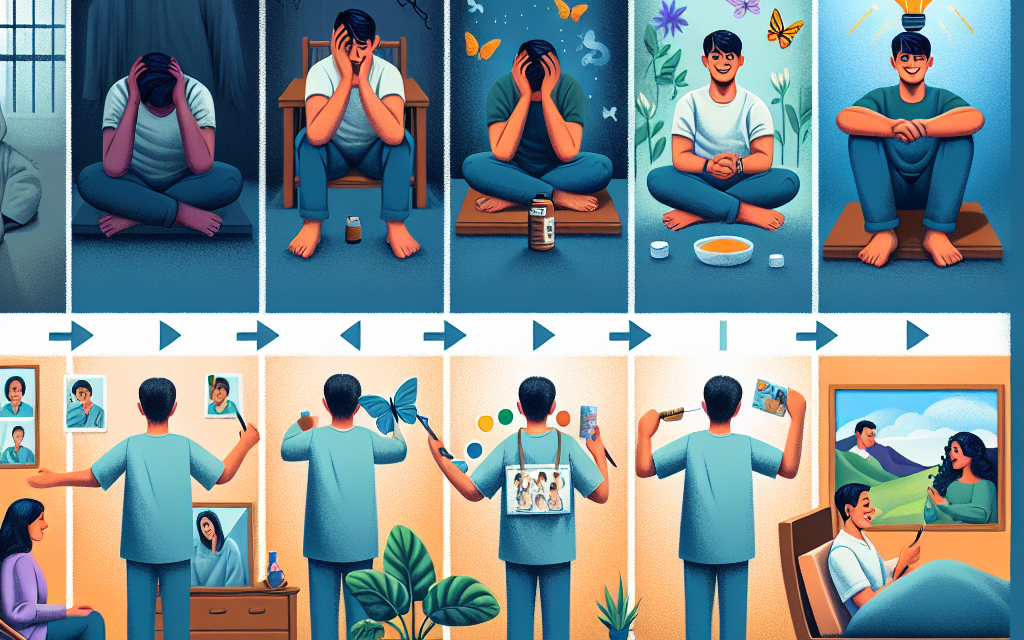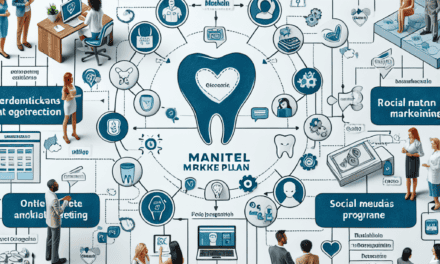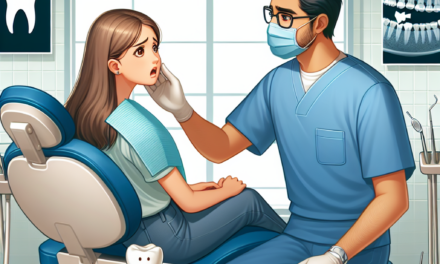Transforming Addiction Treatment: Discovering the Best Options for You

In recent years, the landscape of addiction treatment has undergone significant transformation. With advancements in medical research, a deeper understanding of psychological factors, and the integration of holistic approaches, individuals seeking recovery now have a plethora of options to choose from. This article delves into the various facets of addiction treatment, providing a comprehensive guide to discovering the best options tailored to individual needs.
Understanding the Nature of Addiction
Before exploring treatment options, it is crucial to understand the nature of addiction. Addiction is a complex condition characterized by compulsive substance use despite harmful consequences. It affects the brain’s reward system, leading to changes in behavior, cognition, and emotional regulation.
The Science Behind Addiction
At its core, addiction is a brain disorder. It involves the dysregulation of neurotransmitters such as dopamine, which plays a key role in the brain’s reward and pleasure centers. When substances like drugs or alcohol are consumed, they trigger an excessive release of dopamine, creating a euphoric sensation. Over time, the brain becomes reliant on these substances to produce dopamine, leading to addiction.
Research has shown that genetic, environmental, and psychological factors contribute to the development of addiction. For instance, individuals with a family history of addiction are more susceptible due to genetic predispositions. Additionally, environmental factors such as exposure to substance use at a young age or high-stress environments can increase the risk of addiction.
Psychological and Behavioral Aspects
Beyond the biological components, addiction is also deeply rooted in psychological and behavioral patterns. Many individuals turn to substances as a coping mechanism for underlying mental health issues such as depression, anxiety, or trauma. This dual diagnosis, where addiction coexists with mental health disorders, complicates treatment and necessitates a comprehensive approach.
Behaviorally, addiction is marked by a cycle of craving, use, and withdrawal. This cycle reinforces the addictive behavior, making it challenging for individuals to break free without intervention. Understanding these psychological and behavioral aspects is crucial in tailoring effective treatment plans.
Traditional Treatment Approaches
Traditional addiction treatment methods have laid the foundation for modern approaches. These methods primarily focus on detoxification, counseling, and support groups. While they have been effective for many, they may not address the unique needs of every individual.
Detoxification and Medical Intervention
Detoxification is often the first step in addiction treatment. It involves the removal of toxic substances from the body and managing withdrawal symptoms. Medical intervention during detox is crucial, as withdrawal can be physically and psychologically taxing. In some cases, medications such as methadone or buprenorphine are used to ease withdrawal symptoms and reduce cravings.
While detoxification is essential, it is not a standalone treatment. It must be followed by comprehensive therapy to address the root causes of addiction and prevent relapse.
Counseling and Behavioral Therapies
Counseling and behavioral therapies are integral components of traditional addiction treatment. Cognitive-behavioral therapy (CBT) is widely used to help individuals identify and change negative thought patterns and behaviors associated with addiction. CBT equips individuals with coping strategies to manage triggers and prevent relapse.
Motivational interviewing is another effective counseling technique that helps individuals find the motivation to change their addictive behaviors. It involves empathetic listening and goal-setting to empower individuals in their recovery journey.
Support Groups and 12-Step Programs
Support groups and 12-step programs, such as Alcoholics Anonymous (AA) and Narcotics Anonymous (NA), provide a sense of community and accountability. These programs follow a structured approach that encourages individuals to admit their powerlessness over addiction, seek support from a higher power, and make amends for past behaviors.
While support groups offer valuable peer support, they may not be suitable for everyone. Some individuals may prefer alternative support systems that align with their beliefs and values.
Innovative and Holistic Treatment Options
As our understanding of addiction evolves, so do the treatment options available. Innovative and holistic approaches are gaining traction, offering individuals a more personalized and comprehensive path to recovery.
Integrative Medicine and Holistic Therapies
Integrative medicine combines conventional medical treatments with complementary therapies to address the physical, emotional, and spiritual aspects of addiction. Holistic therapies such as yoga, meditation, and acupuncture are increasingly being incorporated into treatment plans to promote overall well-being.
Yoga and meditation help individuals develop mindfulness and stress-reduction techniques, which are crucial in managing cravings and preventing relapse. Acupuncture, on the other hand, is believed to balance the body’s energy flow and alleviate withdrawal symptoms.
Adventure and Wilderness Therapy
Adventure and wilderness therapy offer unique opportunities for individuals to engage in outdoor activities as part of their recovery process. These therapies focus on building self-esteem, resilience, and interpersonal skills through challenging experiences in nature.
Participants in adventure therapy programs often report increased self-awareness and a sense of accomplishment, which can be transformative in their recovery journey. Wilderness therapy, in particular, provides a serene environment for reflection and healing, away from the triggers of everyday life.
Art and Music Therapy
Art and music therapy harness the power of creative expression to facilitate healing and self-discovery. These therapies provide individuals with a non-verbal outlet to process emotions and experiences related to addiction.
Art therapy encourages individuals to explore their thoughts and feelings through various art forms, such as painting, drawing, or sculpture. Music therapy, on the other hand, uses music as a tool for emotional expression and stress reduction. Both therapies have been shown to improve mood, reduce anxiety, and enhance overall well-being.
Personalized Treatment Plans
Recognizing that addiction is a highly individualized condition, personalized treatment plans are becoming the gold standard in addiction care. These plans take into account the unique needs, preferences, and circumstances of each individual.
Comprehensive Assessment and Diagnosis
The first step in creating a personalized treatment plan is a comprehensive assessment and diagnosis. This involves evaluating the individual’s physical health, mental health, substance use history, and social environment. A thorough assessment helps identify co-occurring disorders and other factors that may influence treatment outcomes.
Based on the assessment, healthcare providers can develop a tailored treatment plan that addresses the specific needs of the individual. This may include a combination of medical interventions, therapy modalities, and support systems.
Tailored Therapy Modalities
Personalized treatment plans often incorporate a variety of therapy modalities to address different aspects of addiction. For instance, individuals with trauma-related addiction may benefit from trauma-focused therapies such as Eye Movement Desensitization and Reprocessing (EMDR) or Trauma-Informed Care.
For those with co-occurring mental health disorders, integrated treatment approaches that address both addiction and mental health are essential. This may involve collaboration between addiction specialists, psychiatrists, and therapists to provide comprehensive care.
Family Involvement and Support
Family involvement is a critical component of personalized treatment plans. Addiction affects not only the individual but also their loved ones. Family therapy and support groups can help repair relationships, improve communication, and create a supportive environment for recovery.
Involving family members in the treatment process also provides them with the tools and knowledge to support their loved one’s recovery journey effectively. This collaborative approach enhances the likelihood of successful outcomes.
Technology-Driven Treatment Solutions
In the digital age, technology-driven treatment solutions are revolutionizing addiction care. These solutions offer convenient and accessible options for individuals seeking recovery.
Teletherapy and Online Counseling
Teletherapy and online counseling have become increasingly popular, especially in the wake of the COVID-19 pandemic. These platforms provide individuals with access to therapy from the comfort of their homes, eliminating barriers such as transportation and geographical limitations.
Online counseling offers flexibility in scheduling and allows individuals to connect with therapists who specialize in addiction treatment. This accessibility is particularly beneficial for those in remote areas or with limited access to in-person services.
Mobile Apps and Digital Tools
Mobile apps and digital tools are empowering individuals to take control of their recovery journey. These apps offer features such as mood tracking, goal setting, and virtual support communities.
For example, apps like Sober Grid and WEconnect provide peer support and accountability through virtual communities. Others, like Headspace and Calm, offer mindfulness and meditation exercises to help manage stress and cravings.
Virtual Reality Therapy
Virtual reality (VR) therapy is an emerging technology that offers immersive experiences to aid in addiction treatment. VR therapy can simulate real-life scenarios, allowing individuals to practice coping strategies in a controlled environment.
Research has shown that VR therapy can be effective in reducing cravings and anxiety by providing exposure therapy in a safe and controlled setting. This innovative approach holds promise for enhancing traditional treatment methods.
Conclusion
The transformation of addiction treatment is a testament to the evolving understanding of addiction as a multifaceted condition. With a wide array of traditional, innovative, and technology-driven options available, individuals seeking recovery can find a path that aligns with their unique needs and circumstances.
By understanding the nature of addiction, exploring various treatment approaches, and embracing personalized and holistic care, individuals can embark on a journey of healing and transformation. As the field of addiction treatment continues to advance, the possibilities for recovery are more promising than ever.
Ultimately, the best treatment option is one that empowers individuals to reclaim their lives, build resilience, and achieve lasting recovery. Whether through traditional methods, holistic therapies, or digital solutions, the path to recovery is a deeply personal journey that holds the potential for profound change.





